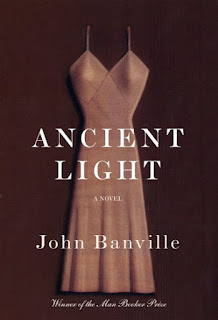An underrated pleasure in life: something familiar,
pleasurable, accessible, and reasonably high quality that we can visit and
revisit as we please. Like having a
special restaurant in the neighborhood, a place you know well and enjoy when
the time is right. The food is very good
if not five-star, you’re a known and valued customer, you’ve never had a bad
meal, and you feel at home. You can stop
by for a comforting and pleasing experience and get a little bit of the
relaxation of coming home.
That’s how I feel about Paul Theroux. He’s written lots of books, and he’s still
producing. I always enjoy reading his
work. I think I know his strengths, and
I also know what his fiction is not and probably never will be. But I keep
coming back for more, and I’m rarely disappointed. He has a special talent for getting across
the essence of an exotic locale at a particular time in history. OK, so maybe the plot is sometimes a little
contrived. Maybe the characters don’t
exactly resonate with the depth of Tolstoy or Flaubert. Maybe the language doesn’t have quite the
sophistication of Banville or Trevor.
But I don’t know another living author that can give such a sparkling and
detailed sense of place and time.
 |
| Malawi |
‘The Lower River’ is his latest novel. It deals with the backwater of Malawi. We learn about how the country has changed in
the last forty years (not for the better, despite the all-too-good intentions
of many) through the life of Ellis Hoch, an American who spent several years
working there in his early twenties, then returns at the age of sixty after his
traditional life in Massachusetts explodes.
There are some aspects of plot and character that don’t ring quite
true. But I now feel that I know
something about Malawi, its people, its precarious position in the world
today. Not somewhere I’m anxious to
visit, but I almost feel that I have, thanks to Theroux’s writing.
We’ve all had the experience of reading a good general
newspaper or magazine and learning about this and that. Until we read something there about a subject
we know well; then we suddenly think that the publication is superficial and
misleading. Is that what’s happening
about Theroux and Malawi? I’ve never
been there so I guess I’ll never know.
But I do find the portrayal convincing, and I guess that will have to
suffice. Theroux offers no easy answers
to the country’s serious problems, nor does he take sides in the various
conflicts he portrays. It’s frankly
quite a mess. That makes the Hollywood
ending all the more improbable, but who cares about the last two pages? The rest is well worth reading. And it would make a very good movie.
So sit back at your favorite table, have a friendly chat
with the waiter you’ve known for years, and order something from the menu you
haven’t had before. The kitchen you know
so well will not disappoint you.

















